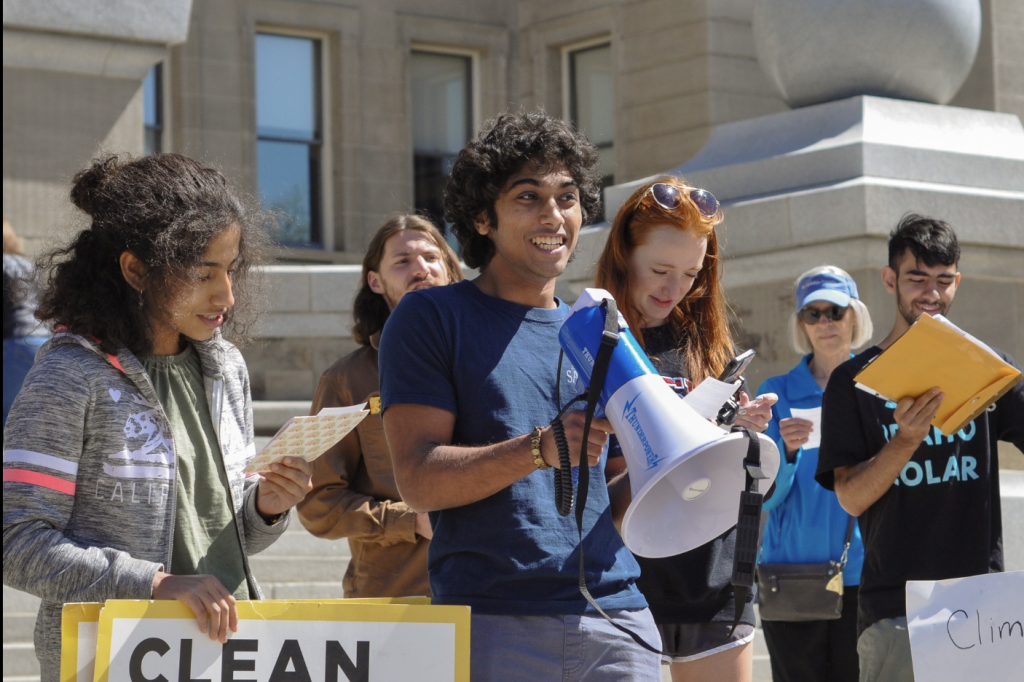Sierra Club sues city of Boise for ‘anti-protest’ noise ordinance
First posted May 8, 2024 8:33am EDT
Last updated May 8, 2024 8:33am EDT
All Associated Themes:
- Legal Action
- Protest Politics
External References

A prominent environmental lobbying group filed a federal lawsuit against the city of Boise, which is Idaho’s capital, alleging a noise ordinance chilled Idahoans’ “rights to free expression” and was selectively enforced to arrest people who protested police killings and anti-abortion legislation.
Key Players
The Sierra Club advocates for sustainable energy and conservationist legislation. Founded in 1892, it has expanded to host chapters across all 50 states.
The Wrest Collective, a Boise-based, community-funded nonprofit law firm, strives to support “minoritized and other left-out groups” through intensive legal efforts. The firm is representing the Sierra Club.
Further Details
On April 2, 2024, the Sierra Club filed its lawsuit against Boise, alleging that a Boise city code limiting noise was unconstitutional and fueled self-censorship.
The noise ordinance was instituted over 70 years ago. But the Sierra Club’s decision to sue the city relates to incidents spanning three recent years, which it said set a pattern of law enforcement using the ordinance unjustly to curtail peaceful protests.
The Sierra Club cited the ticketing of a Black Lives Matter protester in 2021, the arrest of abortion rights activists in 2022 and 2023, and the December 2023 restriction of an individual calling for a ceasefire in the Israel-Hamas war. The group said that members of the Idaho Climate Justice League, a youth-centric offshoot of the Sierra Club’s Idaho chapter, have also been affected.
“I’ve been an activist in this community for a long time, our lawyers have been working in this community for a long time,” said Lisa Young, the director of the Idaho branch of the Sierra Club. “Boise is relatively small enough to where we know what happens in different protest spaces over the years, and we have never seen this prior to essentially 2021. And then, suddenly, the enforcement began. For those of us in the local advocacy scene, there was a notable shift.”
Young also stated that the ordinance has forced the Sierra Club to stop using amplified sound devices “out of fear that we could be approached by police, ticketed, arrested.”
Given the Idaho Climate Justice League’s intentions to participate in the Global Climate Strike on April 19, where a march from the state Capitol to city hall was planned, the Sierra Club sought an injunction prohibiting the law’s enforcement so that the group could freely use a megaphone during the event.
“Boise’s noise amplification ordinance is an unconstitutional restraint on speech and severely limits the means by which the people of Boise can make their voices heard,” Casey Parsons, a co-founder and an attorney of the Wrest Collective, said. “Time and time again, we have witnessed the city of Boise use the ordinance to target and prosecute protestors just for exercising their rights to free speech under the First Amendment.”
“The city of Boise needs to do the right thing and take accountability for how it has chilled the speech of its constituents through unconstitutional means,” Parsons added.
The city did not comment on the lawsuit. Instead, it requested that U.S. District Court reject the Sierra Club’s request for a preliminary injunction against the noise ordinance, arguing it was constitutional and mitigated noise concerns that were “harmful to the health, safety, welfare or quality of life” in Boise.
On April 12, the city also affirmed the Idaho Climate Justice League’s ability to use a megaphone or other such devices during the April 19 protest.
Given these aims and the Sierra Club’s initial complaint, the city maintained that the organization did not aim to violate the city code and, as such, lacked ground to implicate law enforcement for unfair treatment.
“Again, as long as they don’t up their amps to 11 or unlawfully disturb residents, they will not run afoul of the ordinances,” the city stated.
Outcome
Federal judge partially blocks noise ordinance for youth protesters
On April 17, U.S. District Judge David C. Nye, nominated by former President Donald Trump, partially blocked the noise ordinance, allowing the youth climate protesters to use a microphone without constraint.
“It’s really nice that we can use a megaphone,” Nicholas Thomas, a Boise High School student and member of the Idaho Climate Justice League, said. “That is what I was hoping to be able to use. It’s kind of a universal symbol of people power — of protesting.”
The injunction, although temporary and limited to the Sierra Club’s activities and those occurring in downtown Boise, indefinitely allows the group to continue protesting without fear of retaliation. As the lawsuit moves forward, whether the injunction will progress to strike down the law altogether remains to be seen. On April 19th, the Idaho Climate Justice League gathered before the state Capitol and carried out the protest using a megaphone. As of May 6, 2024, there were no further developments.